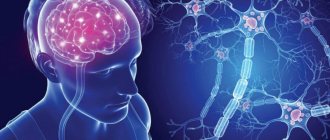Oral hormonal contraceptives
- this is a large group of tablet contraceptives, the effectiveness of which reaches approximately 98%, which is achieved thanks to the active ingredients - synthetic female sex hormones.
Oral contraceptives
have a multi-stage mechanism to prevent unwanted pregnancy: firstly, they inhibit the process of ovulation (egg maturation), secondly, they change the structure of the uterine mucosa in such a way that even if conception occurs, the embryo will not be able to attach to the wall of the uterus, which will make further development pregnancy is impossible.
The undoubted advantages of oral contraceptives
The convenience of pregnancy planning should also be included: after stopping taking the pills, fertility (the ability to conceive) is restored in the next menstrual cycle.
In addition, most women note a significant improvement in the condition of their skin, hair and nails as a result of taking oral hormonal contraceptives
due to the action of artificially synthesized hormones.
Oral hormonal contraceptives
are prescribed not only for the purpose of protecting against unwanted pregnancy, but also for the treatment of certain pathologies of the endocrine system, in particular, hormonal diseases. Of course, in any case, hormonal contraceptives are prescribed only by a gynecologist-endocrinologist after a thorough examination.
Types of oral hormonal contraceptives
Combined oral contraceptives (COCs), estrogen-progestin drugs
– tablets containing synthetic analogues of estradiol and progesterone. These contraceptives inhibit ovulation (egg maturation) and help thicken the cervical mucus, making it difficult for sperm to penetrate the uterus. Such products differ in the content of active substances in the drug. There are monophasic, biphasic and triphasic COCs:
- monophasic
- tablets with a constant level of hormonal substances (Regulon, Rigevidon, Diane-35, Femoden, Logest, Novinet, Silest); - biphasic
- tablets with two different combinations of estrogen and progestin (Anteovin); - triphasic
- tablets with three different combinations of hormones that change during the menstrual cycle (Tri-regol, Triziston, Triquilar, Trinovum, Qlaira).
Microdosed hormonal preparations with varying contents of ethinyl estradiol and gestagens (Logest, Mercilon, Novinet, Lindinet-20, Qlaira, Miniziston 20 Fem, Jess, Diane-35, Tri-Regol, Triziston, Triquilar, Chloe, Demoulen).
Ideal for nulliparous girls who have regular sexual intercourse and are taking oral hormonal contraceptives for the first time. Have minimal side effects. Can also be used as contraception for mature women over 35 years of age (before menopause).
Low-dose hormonal drugs (Yarina, Mediana, Lindinet-30, Silest, Marvelon, Femoden, Regulon, Rigevidon, Belara, Zhannin, Diane 35).
Suitable for women in the reproductive period, as well as those who have any gynecological disorders.
High-dose hormonal drugs, single-phase hormonal contraceptives - tablets with a constant content of hormones (Non-Ovlon, Ovidon).
Currently, they are practically not used as contraceptives; they are used to treat certain hormonal disorders.
What kind of hormonal pills are there?
Classification of hormonal contraceptives depending on the method of use:
• combined estrogen-gestagen contraceptives: • oral contraceptives; • vaginal rings; • transdermal patches; • progestin contraceptives: • oral contraceptives containing microdoses of gestagens (mini-pills); • injection; • subcutaneous implants.
Combined oral contraceptives (COCs) are birth control pills containing estrogen and progestogen components.
Based on the level of ethinyl estradiol, hormonal tablets are divided into:
- high-dose (more than 35 mcg; currently not used for contraceptive purposes),
- low-dose (30-35 mcg) and
- microdosed (20 mcg).
In addition, COCs are monophasic, when all the tablets included in the package have the same composition, and multiphase (biphasic, triphasic), when the package, designed for a cycle of administration, contains two or three types of contraceptive tablets of different colors, differing in the amount of estrogenic and gestagenic components. Stepped dosage causes cyclic processes in the target organs (uterus, mammary glands) of a woman, reminiscent of those during a normal menstrual cycle.
Rice. 1. The mechanism of contraceptive action of COCs.
Taking birth control pills
The rules for taking hormonal contraceptive pills are as follows. COCs are started to be taken from the 1st day of the menstrual cycle: 1 tablet daily at the same time of day for 21 days (as a rule, the drug package contains 21 tablets).
Just like a regular tablet, simply place it in your mouth and swallow. You must take the pill at the same time every day, regardless of whether you plan to have sexual intercourse or not. Forgetting to take the pill means weakening the effect of the contraceptive, which, as a result, increases the risk of an unplanned pregnancy. It should be remembered that multiphase drugs must be taken in a strictly specified sequence. Then they take a 7-day break, during which a menstrual-like reaction occurs, after which they begin a new cycle of administration. When performing an induced abortion, including medical termination of pregnancy, you can start taking COCs on the day of the procedure. If a woman does not breastfeed, the need for contraception arises 3 weeks after birth.
If you miss taking one or more tablets or start taking them late, you should read the instructions for use of the contraceptive. If in doubt, you should consult your doctor for advice.
If it is necessary to delay menstrual-like bleeding, you can not take a break in taking the drugs, continuing to take the tablets of the next package (for multiphase contraceptives, only the tablets of the last phase are used for this).
☺ ADVANTAGES OF USE:
• reduction in the risk of developing ovarian cancer (by 45-50%), endometrial cancer (by 50-60%), benign breast diseases (by 50-75%), uterine fibroids (by 15-30%), postmenopausal osteoporosis (increased mineralization of bone tissue), colorectal cancer (by 18%);
• reduction in the incidence of inflammatory diseases of the pelvic organs (by 50-70%) as a result of increased viscosity of cervical mucus, ectopic pregnancy, retention formations (cysts) of the ovary (up to 90%), iron deficiency anemia due to less blood loss during menstruation;
• weakening of PMS symptoms and menstrual pain;
• good therapeutic effect for acne, seborrhea, hirsutism (for the best third generation birth control pills), for endometriosis, uncomplicated ectopia of the cervix (for three-phase COCs), for some forms of infertility accompanied by ovulation disorders (“rebound effect” in the first months after stopping taking oral contraceptives);
☹ NEGATIVE SIDES
Rice. 2. Degrees of risk of vein thrombosis when taking hormonal pills
Oral contraceptives containing only progestogen
Mini-pills (Exluton, Microlut, Charozetta)
– the most gentle
oral contraceptives
, an alternative to combined contraceptives (COCs). The mini-pill contains progestogen, which is identical to the natural hormone progesterone produced by the ovaries. Mini-pills have the ability to change the quality of cervical mucus, making it thicker and thereby preventing sperm from penetrating into the uterus. In addition, mini-pills slow down the contractile activity of the fallopian tubes, making it difficult for a fertilized egg to enter the uterine cavity, and also change the uterine mucosa, making it difficult for an embryo to implant.
The effectiveness of the mini-pill is slightly lower than that of conventional COCs - 95% compared to 98%. Mini-pills are recommended for women during lactation, if there are contraindications to taking COCs, for women who smoke, and for women over 35 years of age. Unlike COCs, mini-pills require daily and continuous use, but they can be used for a longer period of time (compared to combined oral contraceptives
).
The disadvantages of the mini-pill include a strict dosage regimen (you must strictly follow the regimen of taking the pills), lack of protection against sexually transmitted infections (and therefore it is recommended to use them only if you have a regular sexual partner), as well as the possible occurrence of minor side effects during the first time of use (bloody spotting, engorgement of the mammary glands).
Answers to common questions about oral contraceptives
How to choose oral contraceptives?
Can I do this myself or should I go to a doctor? What tests should I take?
Each of us is unique. The human body has individual characteristics; it is almost impossible to predict the reaction to the emergence of new variables in this stable system in advance. Prescribing any drug may carry a risk of side effects. Oral contraceptives (OCs) are a very large group of drugs. In order to assess how effective and safe the use of birth control pills will be for you, you should visit a doctor so that during your appointment you will be interviewed in detail, told about the pros and cons of each type of drug, and warned about possible side effects.
There are two types of birth control pills: (COCs) – combined oral contraceptives. They contain a combination of estrogen (synthetic or natural estradiol) and progestin (an analogue of natural progesterone) in various dosages.
These drugs come in three different types - monophasic (each tablet contains the same dose of both hormones), biphasic (the package contains two types of tablets with the same dose of estrogen, but the dose of gestagen in them differs; in tablets of the first phase of the cycle it is slightly less than in tablets for second phase of the menstrual cycle) and three-phase (the package contains three types of tablets, the ratio and dose of hormones in them are different). These drugs are very easy to use and, when taken correctly, provide almost 100% protection against unwanted pregnancy. Modern COCs contain microdoses or low doses of hormones and are well tolerated. According to recent studies, using COCs as contraception reduces the risk of ovarian, endometrial and colon cancer. However, there are a number of situations in which the use of such contraceptives should be taken with caution.
There are also oral contraceptives containing only a progestogen component, the so-called “mini-pills”. Their advantage is that such hormonal contraception can be used during breastfeeding; they can be used by women who have contraindications for taking estrogens. But there is also a flip side to the coin - OCs containing only gestagens more often cause adverse reactions in the form of spotting (due to thinning of the endometrium due to estrogen deficiency), mood swings, engorgement and heaviness in the mammary glands.
According to the standards of medical care, to prescribe hormonal contraception, you must tell your medical history in detail, answer all the doctor’s questions, undergo a breast examination and an examination in a gynecological chair. If you are in good health and there are no risks, you can prescribe birth control. It would not be superfluous to conduct an ultrasound of the pelvic organs and mammary glands, duplex scanning of the vessels of the lower extremities and a blood test for coagulation, but this is not mandatory.
Should I take a break from taking birth control pills?
No no need. Almost all modern hormonal contraceptives contain very low doses of hormones, so they can be taken for years. In addition, when using COCs (pills that contain an estrogen component), the risk of blood clots increases significantly in the first months of use, so when you take a break from taking the pills and then start taking them again, your period of increased risk of thrombosis increases by several months in year.
How do birth control pills interact with other medications?
Is it true that antibiotics make their effect weaker?
Hormonal contraceptives, especially combined ones, can increase the side effects and toxicity of some drugs (for example, analgin, some antidepressants and tranquilizers, drugs for the treatment of bronchial asthma), and can weaken the effect of drugs for the treatment of hypertension and some other groups of drugs. Also, the effect of oral contraceptives themselves can be negatively affected by taking medications that affect the central nervous system due to changes in hormonal levels.
The only antibiotic that significantly reduces the effectiveness of both estrogens and gestagens is rifampicin. When you take this drug together with any OC, you must additionally use a barrier method (condom) for the entire duration of treatment. Most known antibiotics can be combined with oral contraceptives, subject to the rules of administration and dosage of the drugs.
Can hormonal pills affect weight loss/gain?
Many women say that they provoke a feeling of hunger - is this true?
Most often, women notice a weight gain of 1-3 kg in the first months of taking OK. During this period, the body adapts to new conditions in the body; against this background, slight fluid retention in the tissues may be observed. This is an absolutely normal process, as long as you do not develop dense, tense swelling. In addition, gestagens, an essential component of any birth control pills, have some effect on insulin metabolism and, by changing blood sugar levels, can cause an increased feeling of hunger. No modern hormonal contraceptive can cause weight gain if you follow the diet. To make it easier to control your appetite during the period of adaptation to OK, gynecologists advise keeping a food diary so that you can independently assess what and when you eat.
Do birth control pills actually increase melanin production?
And provoke the appearance of age spots?
Contraceptives contain analogs of natural sex hormones, estrogen and progesterone, which, through specific receptors, affect melanocytes, increasing the production of melanin. However, individual sensitivity (the number of receptors for certain hormones on the surface of cells; the more there are, the more pronounced the effect these substances have on a particular person) is different for everyone, and the doses of hormones in the most common OCs are very low. If you take precautions during periods of high solar activity and use sunscreen, you are unlikely to experience hyperpigmentation.
How do pills affect the reproductive system?
Is there a risk of infertility (or certain complications) from taking them?
Hormonal contraceptives have a complex effect on the female body:
- block the production of hormones acting on the ovaries in the pituitary gland, suppressing ovulation;
- increase the viscosity of mucus in the cervical canal, which makes it difficult for sperm to move;
- reduce the thickness of the endometrium and change its structure;
- have an effect on the peristalsis of the fallopian tubes.
These mechanisms provide reliable protection against unwanted pregnancy. Modern birth control pills are an absolutely reversible method of contraception.
Most women who stop taking OCs can become pregnant within the first month after discontinuation. In other cases, stabilization of the menstrual cycle occurs within a period of up to 3 months. If, after stopping the OC, your cycle has not returned to its normal state as before starting to take the pills 3 months ago, you should consult a doctor in order to rule out pregnancy or illness.
Do birth control pills help treat hormonal acne?
How? What should be included in their formula? Is there a risk of side effects - is it possible that taking birth control pills will only make the rash worse? If you stop taking the pills, will acne appear again?
One of the factors in the development of acne is hypersecretion of the sebaceous glands, which occurs both with an increased level of androgens (male sex hormones) and with high sensitivity to them.
There are COCs that contain gestagens that reduce the production of male sex hormones in the body and affect their receptors. COCs with an antiandrogenic effect may contain one of these hormones:
- drospirenone
- dienogest
- chlormadinone
- cyproterone
Drospirenone and dienogest are most often found in microdose and low-dose tablets. OC with cyproterone is recommended for use in the late reproductive period; at a young age it is better to choose a drug with a different composition.
Side effects in the form of increased rashes when using antiandrogenic COCs are very rare. However, it is necessary to clearly understand how the pills affect hormonal levels: while you are taking COCs, hormones act on the body, including reducing the number of rashes by suppressing the effects of androgens. When you stop taking COCs, your hormonal levels return to the level they were before taking the pills. It often seems to girls that after stopping contraceptives, the situation with acne has become worse than it was before, but do not forget that acne treatment is a long process, and the main role in it is played by an integrated approach and conscientious implementation of all medical recommendations. COCs do not treat acne on their own; they are prescribed as part of therapy, which must be selected at an appointment with a dermatovenerologist.
How does smoking affect the effectiveness of OCs?
What side effects might there be?
Smoking does not affect the effectiveness of contraceptives in any way; the contraceptive effect is not reduced. Smoking increases blood clotting; estrogen in COCs has a similar effect, which together can lead to thrombosis. You should be careful when choosing OK if you smoke more than 15 cigarettes a day. In such a situation, it is better to refrain from estrogen-containing tablets and opt for drugs containing only gestagens.
Can birth control pills affect mental health?
Some people complain of depression, mood swings and irritability due to taking contraceptives.
Birth control pills can affect mood and general emotional background. Estrogens stimulate the central nervous system, gestagens suppress.
There are observations showing a connection between taking OCs containing only progestogens and an increase in the number of depressive episodes in women, but this issue has not yet been studied in detail. Many women, on the contrary, note a decrease in PMS symptoms when taking hormonal contraception. This occurs due to the equalization of hormonal levels and the absence of cyclical changes.
Making an appointment with a gynecologist
To clarify the details, consult a qualified specialist at the Semeynaya clinic.
Single contact center
8 495 662-58-85
weekdays 8-21, weekends 9-21
To clarify prices for an appointment with a gynecologist or other questions, follow the link below:
Gynecology
When are oral hormonal contraceptives used?
- For menstrual irregularities.
- For certain tumor diseases of the female genital organs (for example, adenomyosis, uterine fibroids, ovarian cysts).
- With pronounced premenstrual syndrome (PMS), painful menstruation (algomenorrhea, menalgia).
- With severe iron deficiency anemia.
- To reduce the risk of developing osteoporosis in mature women.
- For the prevention of ectopic pregnancy.
- For the treatment of acne, acne due to hormonal disorders.
When oral hormonal contraceptives are not used
- Smoking more than 15 cigarettes per day, over 35 years of age.
- Liver diseases (hepatitis, cirrhosis) or liver tumors.
- Severe hypertension.
- Severe diabetes mellitus.
- Kidney diseases.
- Deep vein thrombosis.
- IHD (coronary heart disease).
- Systemic lupus erythematosus.
- Having suffered a heart attack, stroke.
- Before or after surgery.
- Estrogen-dependent tumors of the mammary glands and endometrium.
- Undiagnosed migraine.
- Uterine bleeding of unknown etiology.
- Pregnancy.
Disadvantages of oral hormonal contraceptives
Side effects - spotting, changes in the nature and duration of menstruation - usually disappear after the first 2-3 months of taking the drug. Other side effects include discomfort and discomfort in the mammary glands, in some cases headaches, nausea, and a slight change in libido (sexual desire). Basically, these phenomena are temporary and are the body’s response to taking the drug.
Possibility of gaining excess weight. New generation oral contraceptives contain low doses of hormones, which have a very slight effect on weight gain. Weight correction can be easily accomplished with more careful attention to diet and dosed physical activity.
Rare side effects are episodes of increased blood pressure (in less than 5% of cases, mainly in women diagnosed with hypertension) and attacks of cholelithiasis in women with a confirmed diagnosis of cholelithiasis.
What is the danger?
Those hormones that are part of contraceptives differ from the natural hormones synthesized by the body. But despite some differences in structure, the brain perceives them as its own hormones. Therefore, after taking a hormonal pill, the brain receives a signal about high levels of estrogen and gives the command to stop producing its own hormones. The centers that synthesize estrogens (including the ovaries) seem to fall asleep, which means that all the processes that took place in them change. Due to malnutrition and slow blood circulation, the ovaries decrease in size and atrophy. The structure of the endometrium also changes. As a result, even after stopping the OC, a woman often cannot get pregnant. In some cases, you even have to turn to IVF help.
Oral contraceptives also affect blood viscosity: it becomes thicker, therefore, the likelihood of thrombosis increases. The condition of the blood vessels worsens (their conductivity decreases). In addition, oral contraceptives can cause breast and uterine cancer.
Another consequence is excess weight. Contraceptives increase the concentration of glucose in the blood, which provokes too active insulin production and metabolic problems.
Prescription of hormonal oral contraceptives
- Gynecological examination, consultation with a gynecologist, medical history.
- Oncocytology smear (PAP test).
- Ultrasound of the mammary glands, examination of the mammary glands.
- Ultrasound of the pelvic organs.
- Biochemical blood test (glucose, ALT, AST, alkaline phosphatase, cholesterol, bilirubin).
- Coagulogram.
- Study of hormonal status (at the discretion of the doctor).
The list of studies required to prescribe oral contraception may vary depending on the patient’s individual indications. It must be remembered that the prescription of hormonal oral contraception is always preceded by a thorough examination of the patient. It is unacceptable to self-prescribe a contraceptive due to the high risk of side effects and health risks. Experienced gynecologists at GUTA CLINIC, using modern premium diagnostic equipment, will individually select the most suitable hormonal contraceptive for you, preserving your health and the health of your future children.
Contraindications
Like any drug, COCs have a number of contraindications. In cases where the risk to a woman’s health is too high, the gynecologist prescribes other methods of contraception.
- Migraine. Periodic migraines in a woman are a direct contraindication when prescribing oral contraceptives.
- Depression. If a woman has a history of depression, then COCs are prescribed with caution or not at all. Unfortunately, even in mentally stable women, COCs can provoke the development of depression.
- Obesity more than 1st degree. In this case, other methods of contraception are preferable due to the risk of progression of obesity.
- Smoking. Are you over 30 years old and do you smoke? Then birth control pills are not for you. In women who smoke, COCs can provoke all kinds of diseases of the veins and cardiovascular system.
- Thrombosis and varicose veins.
- Malignant diseases of the reproductive organs at the moment or in history.
- Some women treat hormonal contraceptives as if they were vitamins that can be bought at the pharmacy according to their mood. But this is far from true. You should not prescribe pills without a doctor’s prescription, because different types of COCs have different contraindications, and only a specialist can choose them according to your physiological characteristics.
If you are thinking about hormonal contraception, then with any questions you can contact the gynecologists of the Health MC network. At the clinic, you can undergo hormonal testing and receive professional advice, thus reducing the risk to your health.










